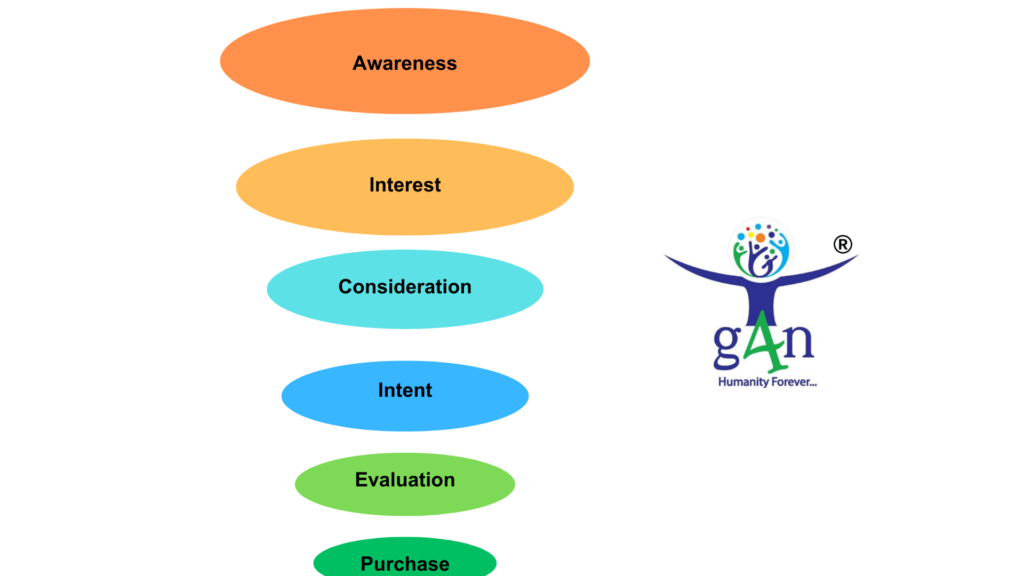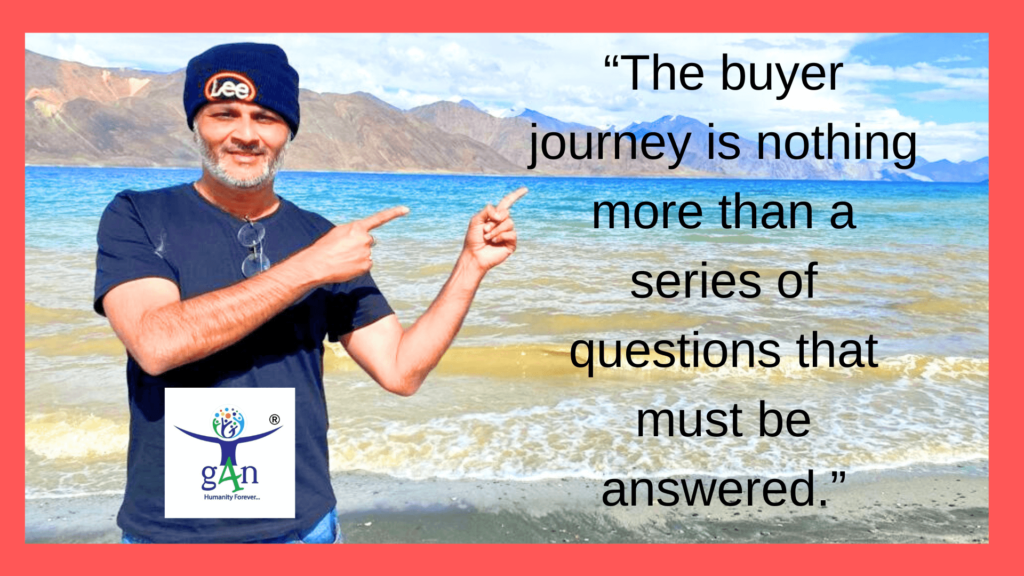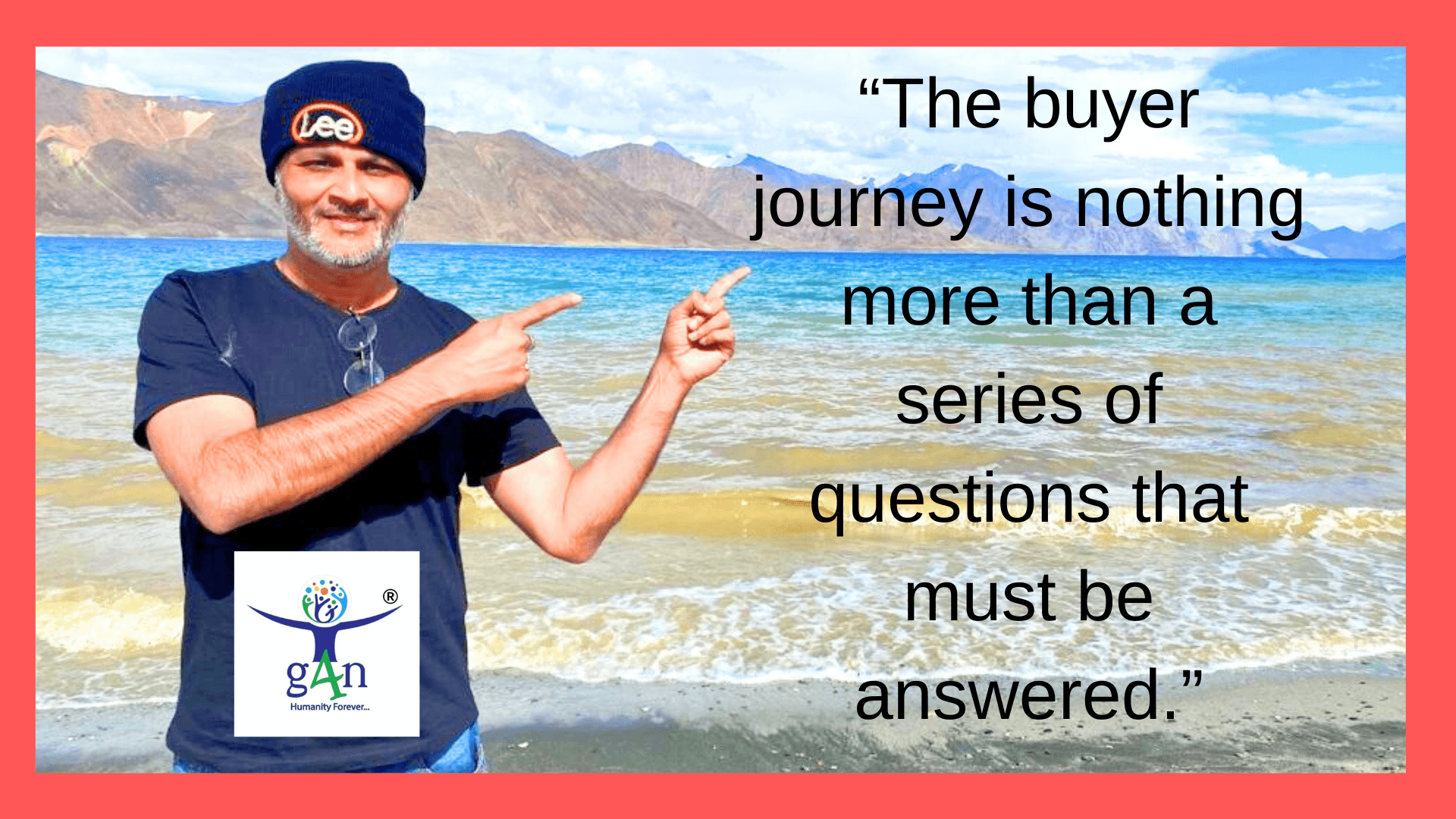Do you know what is marketing funnel & how it works?
Marketing funnel helps businesses attract and convert potential customers into paying customers.
But as business, how do you create an effective marketing funnel that engages & converts?
A well-structured marketing funnel is like a guide that moves customers through various stages of their buying journey, from initial awareness to making a purchase decision.
From brand awareness to creating engagement business can generate great quality leads
& ultimately sales & conversion.
In this blog, we delve deep into the inner workings of the marketing funnel, how it works & how businesses can leverage its potential for skyrocketing sales and revenue.
Let’s, dig in to learn
Table of Contents
What is Marketing Funnel
A marketing funnel depicts the path a customer follows from the first encounter they have with your business, such as reading a blog article, watching a video, through the moment they make a purchase.
Different stages in a marketing funnel correspond to various stops along the way.
The largest group of potential customers is drawn in by the widest portion of the funnel.
They progress down the funnel as you interact with them through marketing efforts or direct conversation, either dropping off or making a purchase.
A simpler funnel might just have three steps: awareness, consideration & conversion.
The stages of awareness, interest, consideration, intent, evaluation, and purchase could be included in a more complicated funnel.
Others include an inverse funnel that connects advocacy and loyalty.
You can divide your marketing funnel into three easy pieces or ten separate ones, depending on what will perform best for you.
The main objective of the marketing funnel is to attract, engage and convert prospects through content & other marketing materials like landing page & ads
Learn: How can you influence customers buying decision
But Most Marketing funnels are commonly based on AIDA Model
- Awareness
- Interest
- Decision
- Action
Or you can add other stages depending upon what best performs for your business as shown in below image

Different stages of Marketing Funnel
Designing marketing funnel depends on your business goals
Depending upon what best performs for your business, marketing funnel differs between organizations
Lets, now dive into different stages of the Marketing funnel.
Awareness
At this stage, the goal is to attract the attention of potential customers and make them aware of your brand, product, or service. Content for this stage should focus on creating brand awareness, providing educational content, and capturing the interest of your target audience.
Interest
Once people are aware of your brand, they move into the interest stage. Here, you need to nurture their interest by providing valuable and relevant content. This can include in-depth blog posts, informative videos, case studies, or webinars that showcase the benefits and features of your product or service.
Consideration
In this stage, prospects are evaluating different options and considering whether to make a purchase. Content for this stage should focus on demonstrating why your product or service is the best choice. This can include comparison guides, customer testimonials, free trials, or interactive demos.
Intent
At this stage, prospects have a strong intention to make a purchase. They may be comparing prices, looking for discounts, or seeking reassurance before committing. Content for this stage should address any concerns or objections and provide incentives such as limited time offers, discounts, or guarantees to encourage.
Evaluation/Purchase
This is the final stage of the marketing funnel, where prospects become customers by making a purchase. Content at this stage should focus on facilitating the purchase process, providing clear calls-to-action, and ensuring a smooth and seamless buying experience.
From brand awareness to creating engagement business can generate great quality leads
& ultimately sales & conversion
Understanding how to create a Marketing funnel for your business that works effectively will help
your business reach its goals
Now, lets get into the benefits of Marketing funnel and why you should implement it for your business
Learn about the Customer Journey Map & How it can benefit business
Top 7 Benefits of Marketing Funnel

Funnel promotes more substantial growth
With the use of funnels, you can more easily organize your marketing strategies and determine which strategies are most effective at each level of the funnel. For instance, you might discover that TikTok videos do a great job of raising awareness of your company but little to really encourage transactions. This enables more strategic growth because you can expand on what succeeds and cut down on what doesn’t.
Builds rapport with your customers
To whom are you advertising? What interests them? What kinds of marketing are effective with them? Setting up a funnel enables you to comprehend your target market and what they require in order to be enthusiastic about making a buy from you
Understands the buying cycle
Your average order value determines how long it takes for merchandise to sell. Usually, it will take longer for expensive and high-value items to sell compared to the cheaper ones. But on average, how long does it take for both expensive and inexpensive things to sell?
The marketing funnel provides you with insight on where to invest your money (and when) in order to get those products to sell within the typical timeframe after you have those data
Focusing on useful leads
Not all of your leads will convert into customers, but you can identify the right leads for your company by building a marketing funnel, compelling website visitors to provide their email addresses, and monitoring the results to learn who is genuinely interested in buying your goods or services.
A marketing funnel may genuinely help you see the proper leads for your company and help you avoid wasting time and money on people who are uninterested in what you have to offer.
Having a sales funnel makes it simple for you to convert the proper leads for your organisation into paying customers
Fostering connection of trust
When you provide high-quality material, it builds trust in the minds of your audience that you are providing it for free in order to make them feel special. The sales funnel has stages with prior approaches and leads magnets that lure your leads to go one more step closer to making a purchase.
The sales funnel can actually produce more engaging possibilities for you to pitch your sales to leads, allowing you to develop lasting relationships that will eventually result in them becoming possible clients.
Boost your conversion rate
When you establish a sales funnel, you will next make a plan for your marketing efforts with successful lead magnets and high-quality content, valuing the trust and worth of your leads, which will ultimately lead to the closing step of sales.
A well-designed sales funnel with efficient lead magnet processes can increase conversion for your company. With the aid of the sales funnel, you can identify your target market and concentrate solely on your leads in order to turn them into customers.
Understanding your customer’s journey and your company’s pain points will help you understand your customer better. The more you understand your consumer, the more sales your company will generate.
Understanding customer journey map
Utilise your marketing funnel to track how leads are interacting with your company and
to determine what kind of information or support a lead is likely to require at any given time.
You can make sure that your marketing strategy is solid and successful at every stage of the
consumer journey by paying attention to your marketing funnel.
For instance, it’s possible that your company requires more marketing materials for leads
who are interested in learning more about your goods.
If you are aware of the needs that leads have at various points in the funnel, you will be
more likely to see this problem and fix it.
Marketing funnel that works and benefits both your business & customers go a long way in giving you better ROI
Questions, Needs and Motivation of your target audience in Marketing Funnel
Now the question is how to design the marketing funnel that works & focuses on questions, needs & motivation of your target audience.

It helps your business grow by enabling you to better understand your customers, tailor your messaging,
create personalized experiences, enhance your value proposition, guide product development, build trust & refine your marketing strategies.
So, let’s dive into each of the above
Awareness Stage
- Questions: What problem am I facing? What are the available solutions? What are the benefits of solving this problem? How can this brand/product help me?
- Motivation: Seeking information, exploring options, understanding the value proposition.
- Specific Needs: Educational content, informative blog posts, introductory videos, industry reports, and guides.
Interest Stage
- Questions: How does this product/service work? What are its features and benefits? How does it compare to other alternatives? Are there any success stories or case studies?
- Motivation: Digging deeper into the product/service, evaluating its suitability.
- Specific Needs: In-depth articles, explainer videos, webinars, customer testimonials, product demos.
Consideration Stage
- Questions: Is this product/service the right fit for my specific needs? Are there any limitations or drawbacks? How does it integrate with existing systems or processes? How does the pricing and value align?
- Motivation: Assessing the feasibility and compatibility of the product/service.
- Specific Needs: Comparison charts, detailed case studies, interactive demos, free trials, product samples, expert consultations.
Intent Stage
- Questions: Can I trust this brand? Are there any guarantees or warranties? Are there any current promotions or discounts available? How do I proceed with the purchase?
- Motivation: Seeking reassurance, looking for incentives to take action.
- Specific Needs: Trust-building content (customer reviews, ratings), limited-time offers, money-back guarantees, testimonials, customer support availability.
Evaluation/Purchase Stage
- Questions: How do I complete the purchase? Is the checkout process secure and straightforward? Are there any additional costs or hidden fees?
- Motivation: Finalising the purchase, ensuring a seamless experience.
- Specific Needs: Clear calls-to-action, user-friendly checkout process, secure payment options, FAQ section, live chat support.
How research, customer behaviour & feedback help business to convert
Marketing research, gathering customer feedback, and analyzing customer behavior are essential tools for gaining insights into your target audience’s questions, motivations, and needs at each stage of the marketing funnel.
Here’s how these practices provide valuable insights:
Marketing Research in Marketing Funnel
Identify Target Audeience
- Identify Target Audience: Marketing research helps you understand your target audience’s demographics, preferences, and pain points. This information helps tailor your content and messaging to resonate with them
- Competitive Analysis: Researching your competitors allows you to understand how they are addressing customer needs and positioning their products or services. This knowledge helps you differentiate yourself and provide unique value.
- Market Trends: Studying market trends and industry insights provides a broader understanding of the evolving needs and expectations of your target audience. It helps you stay ahead of the curve and adapt your marketing strategies accordingly.
Getting Customer Feedback
- Surveys and Interviews: Collecting feedback directly from your customers through surveys, interviews, or focus groups helps you understand their experiences, challenges, and expectations. This feedback can uncover specific questions they have and highlight areas where your marketing funnel may need improvement.
- Social Media Listening: Monitoring conversations on social media platforms allows you to gather real-time feedback and insights. Pay attention to customer comments, reviews, and mentions related to your brand or industry. These conversations can reveal common questions, concerns, or motivations.
Analyzing Customer Behaviour
- Website Analytics: Analyzing website data, such as page views, bounce rates, and time spent on each page, provides insights into how customers navigate your site and engage with your content. This data helps identify areas where customers may have specific questions or needs.
- Conversion Tracking: By tracking conversions and analyzing the customer journey, you can identify which stages of the marketing funnel are performing well and which may require optimization. Understanding where customers drop off or exhibit hesitation can indicate areas where they have unanswered questions or unaddressed needs.
- A/B Testing: Conducting A/B tests on different versions of your marketing assets (e.g., landing pages, emails, ads) allows you to compare customer responses and behaviors. This experimentation provides insights into what messaging, design, or content resonates best with your audience at each stage of the funnel.
By leveraging marketing research, customer feedback, and behavior analysis, you can continuously refine your marketing funnel to address your target audience’s questions, motivations, and needs.
This iterative approach ensures that your funnel remains relevant, engaging, and effective in guiding customers towards conversion.
In order to ensure marketing funnel works properly, you have to check each & every stage of the customer journey
Conclusion: Give your business a flight through Marketing Funnel
Marketing funnel that works & syncs with business goals will get high returns
Some people have a quick and easy path to become a customer.
Marketing funnel is critical in digital marketing because it can help in making your website popular & shows you the importance of business website.
People interact with content & social media interactions & that can go a long way to achieve your business goals
Also Marketing funnel helps in better decision making.

Others take a circuitous route that passes through numerous barriers before committing.
Even while it provides a clear structure for marketing efforts, the marketing funnel does not accurately represent the experience of many clients.
It is normal for certain clients to move through the acquisition, consideration, and conversion stages. Others will vacillate before making a decision.
To create content for each stage of the marketing funnel, consider the specific needs, motivations, and questions your target audience may have at each stage.
Tailor your content to address those needs and guide them through the funnel.
Use a mix of formats such as blog posts, videos, social media posts, case studies, emails, and landing pages to deliver the right content at the right time.
Continuously analyze and optimize your content based on customer feedback, engagement metrics, and conversion rates to improve the effectiveness of your marketing funnel.
In the end, marketing funnels assist you in clearly outlining your marketing initiatives for everyone, from ardent followers to strangers
Want to create a Marketing Funnel, here are Free Marketing Funnel Templates from Canva

